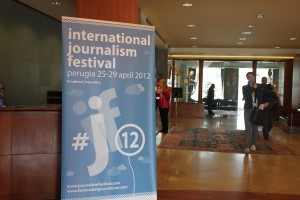How to bring the EU to local communities
It is no secret that the EU recently is in a difficult situation.
The majority of the public opinion within the member states thinks that part of the current Euro crisis depends on the EU itself, which is perceived by many as a distant, remote body managed by bureaucrats deciding the fate of the EU states and their population.
The workshop Europe, Next Question Please opened with the introduction by Prof. Fabio Raspadori, haed of the FISE project, which launched four years ago within the University of Perugia. FISE (short for Finestra sull’Europa, Italian for A Window on Europe) is a training opportunity for university students to learn how to report about European issues and create audience engagement and a better understanding of complex European topics.
The articles produced by the students taking part in the project are published on a monthly/bi-monthly basis in a local newspaper of the region of Umbria and aim to improve the knowledge of the EU within the local population.
” The EU integration brought many advantages, wealth, richness, safety and peace. The EU ensures a quality of life unparalleled in other contexts worldwide. Therefore it is wrong to say the EU decides everything and badly” said Raspadori in his introduction.
The university professor thinks that one of the main problems making the discourse about the EU too detached from the needs of the people is in fact a communication issue.
“In the media there is too much talk about method, tools and the way journalists should work. Less attention is dedicated to content and how to improve it” he said.
Training possibilities for journalists are also an obstacle between the EU and its citizens, and FISE wants to work on this problem. “The EU is something really different from all other realities, it is not a state and cannot be handled the same way we normally handle national politics. If you don’t know the EU you can’t narrate it or explain it.”
FISE is trying to build a bridge to inform EU citizens from the bottom up, however Raspadori believes that the project did not receive the attention and recognition it deserves. A possible reason for this limitation might be the lack of information material about FISE in English, which obviously restricts the knowledge of the project abroad.
The point was raised during the questions and answer session and Raspadori promised to look into the matter in the future but, as it often is the case in Italy, everything will come down to the availability of resources.
The workshop continued with the contribution of Diletta Paoletti, Massimo Persotti and Pier Virgilio Dastoli who put the relevance of FISE into the broader context of the Italian national experience within the EU and highlighted the need for better training and a mentality shift in the way communication professionals approach EU topics.
Claudia Costa

